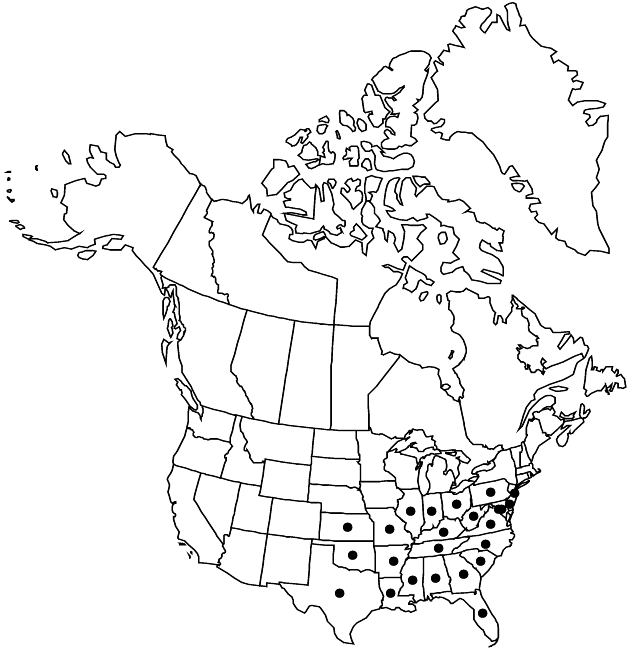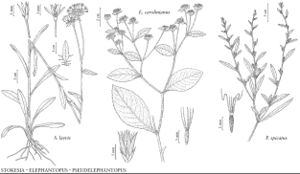Difference between revisions of "Elephantopus carolinianus"
Nomencl. Bot. ed. 3, 256. 1797.
Treatment appears in FNA Volume 19. Treatment on page 203.
FNA>Volume Importer |
imported>Volume Importer |
||
| (One intermediate revision by the same user not shown) | |||
| Line 45: | Line 45: | ||
|publication year=1797 | |publication year=1797 | ||
|special status= | |special status= | ||
| − | |source xml=https:// | + | |source xml=https://bitbucket.org/aafc-mbb/fna-data-curation/src/2e0870ddd59836b60bcf96646a41e87ea5a5943a/coarse_grained_fna_xml/V19-20-21/V19_240.xml |
|tribe=Asteraceae tribe Vernonieae | |tribe=Asteraceae tribe Vernonieae | ||
|genus=Elephantopus | |genus=Elephantopus | ||
Latest revision as of 19:50, 5 November 2020
Plants (1–)3–8(–12+) dm. Leaves mostly cauline at flowering; blades broadly elliptic or ovate to lanceolate, 6–12(–18+) cm × 30–80(–120+) mm (including petioles), both faces sparsely pilose to hirsute. Bracts rounded-deltate to lance-deltate, (5–)10–15(–25+) × (4–)6–12+ mm. Inner phyllaries 8–10 mm, sparsely hispidulous to pilosulous, hairs 0.1–0.3 mm. Cypselae 2.5–4 mm; pappi 4–5 mm. 2n = 22.
Phenology: Flowering Aug–Sep(–Oct).
Habitat: Open or shaded, damp to wet places in pine forests and mixed forests, often on sandy soils
Elevation: 10–700 m
Distribution

Ala., Ark., Del., D.C., Fla., Ga., Ill., Ind., Kans., Ky., La., Md., Miss., Mo., N.J., N.C., Ohio, Okla., Pa., S.C., Tenn., Tex., Va., W.Va.
Discussion
Selected References
None.
Lower Taxa
None.
